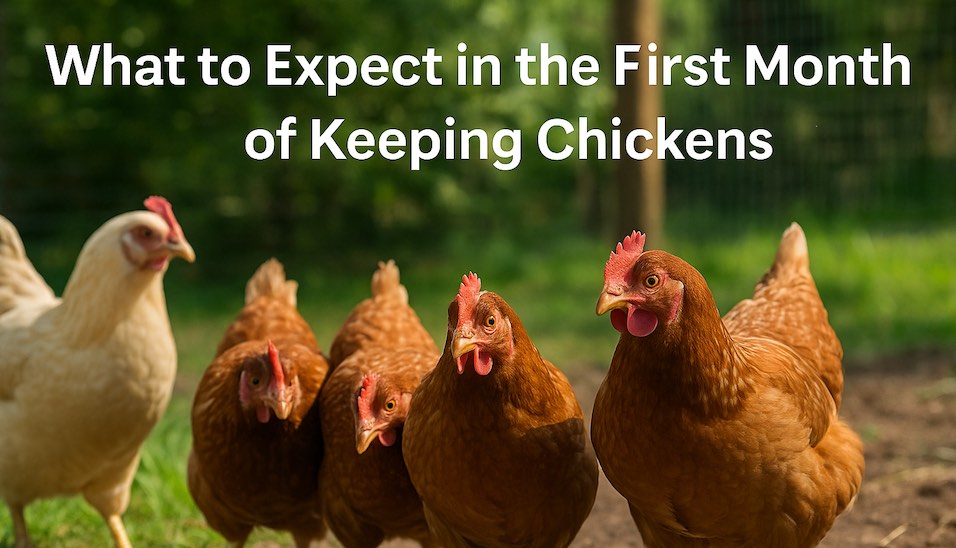Foot-and-mouth disease and chickens
What are the impacts of foot-and-mouth disease?
Foot-and-mouth disease has arrived on Australia’s doorstep. It poses a massive threat to our livestock industries and economy, should an outbreak occur.
All Australians can play a role in helping to prevent a foot-and-mouth disease (FMD) outbreak. Chicken keepers are especially important.
What is foot-and-mouth disease?
Foot-and-mouth disease, or FMD, is a disease that affects cloven hoofed livestock:
- Cattle
- Sheep
- Goats
- Pigs
- Deer
- Camels
- Alpacas
- Llamas
- Buffalo
Can chickens catch food-and-mouth disease?
Foot-and-mouth disease is very unlikely to affect chickens, poultry or other birds. It also rarely affects humans.
Why is stopping FMD so important?
FMD is considered a particular risk for Australia because FMD-free status is key to accessing international markets for our meat exports. Although figures vary, in 2021 Australia exported over 70 % of red meat produced, with a value of over 10 billion dollars. Many Australians rely on the meat and livestock industries for their livelihoods.
How does foot-and-mouth disease spread?
Australia has been FMD-free for over 130 years, so animals here have no immunity to the disease. Although most FMD infections are mild and mortality rates are relatively low, about 5 % in cattle, the disease is highly contagious.
FMD can be spread in manure, urine and other bodily fluids from infected animals. It remains active on clothes, shoes, tools and vehicle tyres. This is why travellers returning from Bali are being asked to clean their shoes or throw them away.
FMD can also be spread in infected meat products. However, a susceptible animal would have to eat the infected food in order to contract FMD. Infected meats do not pose a risk to humans.
What role do chicken keepers play in preventing FMD?
Chicken keepers play an important role in preventing the spread of FMD. Here is what you can do:
1. Be careful what you feed your chickens
Many backyard chicken keepers collect scraps for their chickens. Even if you are being careful, these scraps could contain meat or dairy by accident. That is why feeding kitchen scraps (swill) to chickens is illegal in Queensland.
Meat and dairy are fine for chickens, in small amounts. But there is a small chance that the meat or dairy could carry FMD. If the scraps were consumed by livestock, such as a pig, it could result in an FMD outbreak. The risk of diseases like FMD are the reason why feeding swill to pigs is illegal.
Here is what you can do:
- Only give your chickens scraps that have had no contact with meat, eggs or dairy
- Don't feed your chickens scraps from restaurants or supermarket waste, as the risk of contamination is much higher
- If you are feeding your chickens scraps, do it somewhere that other livestock cannot access
- Always clean up and dispose of uneaten scraps
- Don't feed chickens and livestock together
The presence of meat and dairy in animal feed can cause all sorts of biosecurity risks and spread diseases including FMD and mad cow disease. That is why it is so important to be careful what you feed your animals.
2. Practice good biosecurity
Chickens and poultry that have contact with cattle or other cloven-hoofed animals can pose a biosecurity risk in the case of an FMD outbreak.
If chickens come into contact with affected livestock, they could then carry FMD on their feet or feathers. Although it is an unlikely scenario, chickens moving from an infected farm to an uninfected farm could spread FMD.
Practice good biosecurity by moving your chickens around as little as possible – don’t take them off-farm unless you have to – and keeping them confined to your property.
If you are taking your chickens off-farm, for example for a show, disinfect all equipment (cages etc), wash your birds’ feet and keep them away from livestock and manure for at least 24 hours before leaving.
More information about good coop biosecurity is available here.




